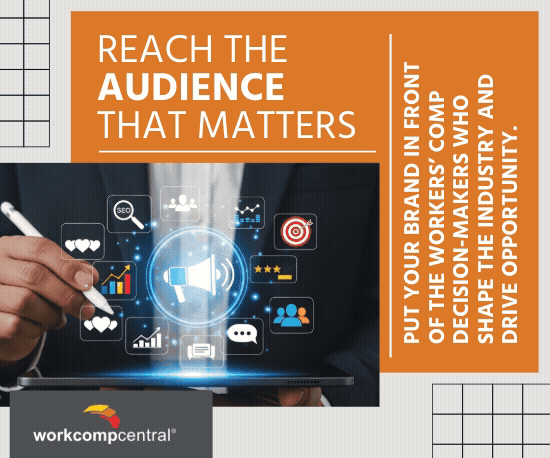Industry Insights
July 13, 2020
Espinoza: Workplace Mental Health Even More Critical Now
- National
- - 0 shares
Mental health is in the forefront as an impact of the coronavirus pandemic.

Kathy Espinoza
A new article in The Atlantic discusses widespread increases of anxiety, depression and substance abuse since the onset of COVID-19. A Kaiser Family Foundation survey found that this public health crisis has negatively affected the mental health of 56% of adults. The manifestations of post-traumatic stress — from spontaneous conflicts in retail stores to health care workers taking their own lives — have become common on the daily news.
Now, more than ever, the mental health of employees in the workplace is an immediate concern for employers. The impacts on productivity, quality control and business continuity are there alongside the health and safety of all workers. Financial insecurity and lost jobs raise concerns over workplace violence. For many workers, their home has become their new workplace, as adverse impacts of domestic and child abuse are emerging with disturbing frequency.
A variety of mental illness factors cost American employers more than a half-trillion dollars annually. Investment in improving employee mental health and alleviating some of the stresses causing anxiety and depression yield valuable human and economic returns. Employers can take concrete actions to help their employees get the assistance they need.
Remove the stigma of mental illness
Although it has been almost 25 years since passage of the Mental Health Parity Act, which considers mental illness on the same basis as any other illness, the stigma of mental health still hangs on. Mental illness is too often viewed as a “weakness,” those who suffer from it characterized as “disturbed” or worse, and the troubles it causes as “all being in your head.”
The truth is that mental illness is real illness and requires treatment in the same way cancer, diabetes or pneumonia does. By communicating supportively and offering real help for employees’ mental health, employers can constructively break down the stigma and encourage early treatment before mental health issues become a crisis.
Communication that educates
Employers who deal with workplace mental health realistically are doing more than just eliminating negative attitudes about mental illness. They are educating employees on how mental health impacts their work, teaching them valuable skills for managing stress and resolving the kind of issues that lead to depression, anxiety or burnout. Resources for educating the workforce in stress reduction, conflict management and personal resiliency are among the training available through Keenan.
Supervisors need to be on board
Your supervisory and management team are the frontline people who work directly with the most employees. Just as important as general employee education on mental health, educating supervisors about mental health and supporting their employees helps mitigate the impact of mental illness in the workplace. An empathetic relationship between supervisors and their employees is a key success factor in addressing potential mental health issues early and encouraging the use of available mental health resources.
Professional assistance through employee benefits
Mental health benefits are vital to employees getting the treatment they need for mental health conditions. As one of the Essential Health Benefits provided under the Affordable Care Act (ACA), employer-sponsored health plans generally provide the range of treatments to address workplace mental health.
In addition, an employee assistance program (EAP) is effective for intervention for many immediate issues and response to major crises. These benefits make a real difference in people getting help without creating a financial burden or forgoing treatment altogether.
Employers bear a significant amount of the impacts of mental health. Confronting the challenges of workplace mental health compassionately and realistically, employers can also go a long way to reduce those impacts. While improving the vitality and safety of their facilities, they are also enriching the lives of their employees.
Kathy Espinoza is Keenan and Associates' ergonomist and conference speaker. Keenan is a public agency property and casualty practice in Torrance, California. This entry is republished from Keenan's blog.
Advertisements
Columns
- Montgomery: San Fran City Official Stole $627k From Workers' Comp Division 12/10/25
- Kamin: Ring the Bells for Settlement Season 12/08/25
- Paduda: Does Comp Care About Workers? 12/05/25
- Sandoval: Throwing Subrogation Under the Bus 12/03/25
- Johnson: Some Thoughts on Apportionment - And SIBTF 11/20/25
- Montgomery: State's First Responders May File Comp Claims for Trauma 11/14/25
- Snyder: Use This New Survey to Negotiate Better 11/12/25
- Holden: Workers' Compensation Act Withstands Another Constitutional Attack 11/11/25
- Gelman: Sherrill's Win Locks in Worker Protections 11/10/25
- Kamin: Newsom Promises SIBTF Reforms in 2026 11/07/25
- Kamin: Comp Costs Hit Highest Combined Ratio Since 2001, WCIRB Says 11/05/25
- Montgomery: DIR to Blow $1.25M on Another Questionable Comp Study 11/03/25
- Wroten: California Sets the Standard as New Study Links Workplace Injuries to Heat Exposure 10/29/25
- Kamin: En Banc Clarifies Policy Reporting Requirements 10/27/25
- Gelman: PTSD-Stricken Officer's Disability Claim Denied 10/22/25
- Snyder: TAG a Structured Settlement Broker 10/17/25
- Snyder: New Medi-Cal Rules Can Affect Your Settlement 10/15/25
- Fish: Guarding Against PTSD Overdiagnosis 10/10/25
- Montgomery: DWC's MPN List Disappears Yet Again 10/08/25
- Ferguson: A Tribute to Thomas Chapman Lynch 10/06/25
Now Trending
- Workers' Compensation News
-
Calif. Court: WCAB
Has Duty to Flesh Out Witness
Statements When Workers Can't…
Posted on Dec 9, 2025
-
Calif. Court Nixes
Requirement to Add Comp Coverage to
FAIR…
Posted on Dec 10, 2025
-
Mo. Carrier Must
Pay Bill for Worker's Knee…
Posted on Dec 11, 2025
-
Wis. Employer
Wrongfully Refuses to Rehire
Injured Truck…
Posted on Dec 10, 2025
-
N.J. Legislators
Seek to Block ABC Rule…
Posted on Dec 15, 2025
-
Ntl. NCCI: Rate
Cuts Getting Smaller, but Decreases
Expected to…
Posted on Dec 15, 2025
-
N.Y. Governor
Vetoes Fraud Assessment…
Posted on Dec 9, 2025
-
N.Y. Widow Doesn't
Need Carrier's Consent to Settle
Third-Party…
Posted on Dec 9, 2025
-
Ariz. Court
Upholds Closure of Worker's Claim
for Injuries From Being Punched by…
Posted on Dec 12, 2025
-
Neb. Worker
Remains Disabled, Needs Additional…
Posted on Dec 9, 2025
Jobs
- Workers' Compensation Defense Attorney (REMOTE)
- Workers’ Compensation Defense Attorney - 100% Remote
- In-house REMOTE Workers' Compensation Litigation Attorney
- Defense Attorneys - Remote Work Available
- Trial Attorney - Workers Compensation Staff Counsel
- Defense WC Attorney Wanted- We will beat any offer for the right candidate. Low billables, real bonuses and fast track equity partnership
- testing posting a job Workers' Compensation Jobs
Upcoming Events
Mar 3-4, 2026
Save The Date! WCRI’s 2026 Ann
Registration will open up in the coming months. We'll see you there! - Leading national workers' …
Mar 5-6, 2026
DWC’s 33rd Annual Educational
Register Now! 2026 conference topics: DWC Update AI with a Claims Focus Medical and Legal Ethics …
Mar 19-20, 2026
DWC’s 33rd Annual Educational
Register today! 2026 conference topics: DWC Update AI with a Claims Focus Medical and Legal Ethi …
Social Media Links
c/o Business Insurance Holdings, Inc.
Greenwich, CT 06836




No Comments
Log in to post a comment